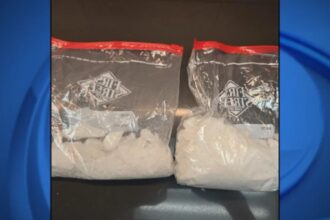U.S. attorneys nationwide are significantly involved in the Trump administration’s efforts to combat cartel-related crime.
A father and son duo from Utah face charges for allegedly conspiring to provide substantial support to a Mexican cartel and a foreign terrorist organization through their involvement in oil theft in southern Texas. Authorities have leveled charges that encompass conspiracy to engage in money laundering alongside associated smuggling offenses.
An ongoing issue related to border crime encompasses a range of activities, from oil field theft in west Texas to the smuggling and theft of illicit crude oil along the Texas-Mexico border, as reported by The Center Square.
Two individuals from Utah, Maxwell Sterling Jensen, 25, and James Lael Jensen, 68, have been charged with conspiracy to provide financial support to the Cartel de Jalisco Nueva Generación (CJNG). In a significant move, the Trump administration classified CJNG, along with various Mexican cartels, transnational criminal organizations, and violent gangs, as foreign terrorist organizations this past February, according to The Center Square.
Federal authorities report that the Jensens were in charge of Arroyo Terminals located in Rio Hondo, Texas. The firm asserts that it “focuses on the domestic and international procurement of crude oil,” as stated on its website. In a dramatic turn of events, federal agents stormed the company’s facilities in April following an extensive investigation.
During a hearing in Utah in April, Assistant U.S. Attorney Michael Hess stated that the Jensens were engaged in “entering into agreements with conspirators – unindicted conspirators – to bring mislabeled crude oil from Mexico into the United States.”
A father and son duo faces serious allegations, including conspiring to carry out financial transactions aimed at hiding the origins and nature of profits from illegally smuggled crude oil. They are also accused of facilitating the fraudulent entry of nearly 2,881 oil shipments, violating the Tariff Act, as detailed in a recently unsealed indictment.
Last week, the court dismissed indictments against two family members, Kelly Anne Jensen and Zachary Golden Jensen, citing “the interest of justice,” according to KVEO-Brownsville.
During the initial arrests of the Jensens, law enforcement officials confiscated four tank barges filled with crude oil, three commercial tanker trucks, an Arroyo Terminal pickup truck, and one personal vehicle, as outlined in the charges. Authorities announced that they are also pursuing the forfeiture of additional tanks, real property, and other items located on the premises.
A collaborative effort among various law enforcement agencies took place during the investigation, featuring participation from the FBI, U.S. Immigration and Customs Enforcement’s Homeland Security Investigations, DEA, IRS Criminal Investigations, U.S. Customs and Border Protection, and U.S. Marshals Service.
In a striking move, IRS Criminal Investigation special agents have employed forensic accounting techniques to trace an alleged money trail and effectively “halt the flow of cash.” This approach mirrors their strategies in tackling cases linked to drug cartels and organized crime, according to IRS CI-Houston’s acting Special Agent in Charge, Lucy Tan.
Providing material support and facing money laundering charges can lead to a prison sentence of up to 20 years. Charges related to assisting in the smuggling of goods and providing false statements could result in a prison sentence of up to 10 years. James Jensen is confronted with a charge of money laundering, which could lead to an extra 10 years behind bars if found guilty.
A hefty fine of $500,000 or potentially double the value of the property at stake accompanies the money laundering charge, while additional counts could result in a maximum penalty of $250,000. A new indictment reveals that the federal government aims to secure a $300 million financial penalty following a conviction.









